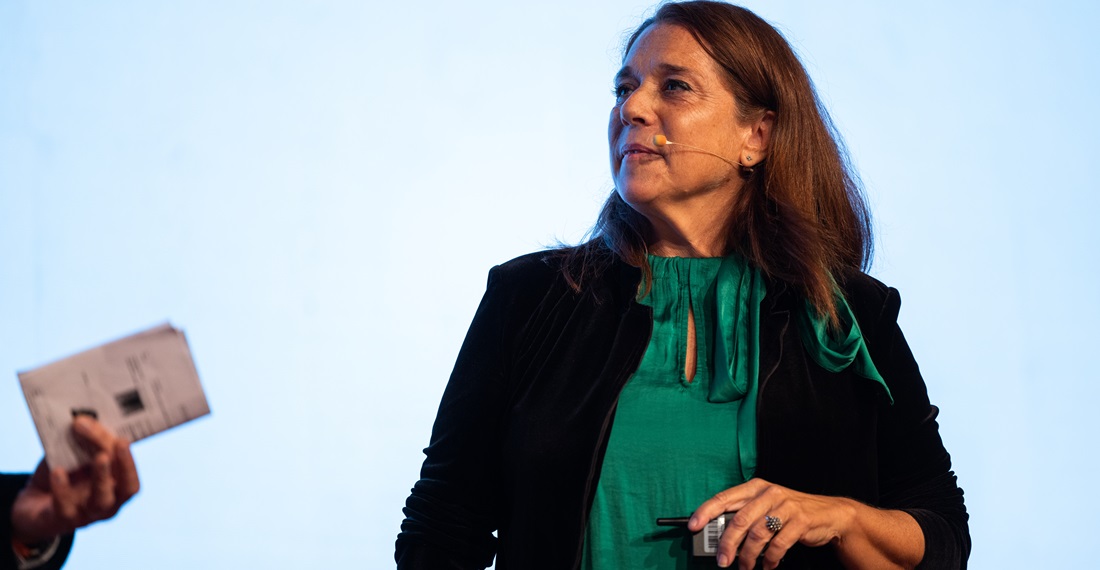
Exclusive Interview with Emma Cobos, Innovation Director at Port of Barcelona
Dec, 09, 2024 Posted by Gabriel MalheirosWeek 202447
Last week, the city of Niterói served as the stage for the Tomorrow Blue Economy, a global event dedicated to the sustainable future of the oceans. The international congress, organized by iCities – a pioneering smart cities company in Brazil – with the endorsement of FIRA Barcelona and in partnership with the Niterói City Hall, marked its debut in Brazil. One of the keynote speakers at the event was Emma Cobos, Director of Innovation at the Port of Barcelona.
She gave an exclusive interview to DatamarNews’ team on innovation and smart logistics in ports. Here’s what she had to say:
1) What are the main expected changes in terms of innovation and the application of smart solutions in the port sector in the coming years
Emma Cobos: The most significant changes will be related to the energy transition. We know that ports consume a lot of energy. For instance, the Port of Barcelona requires energy equivalent to that of a city with 200,000 people. We can’t continue relying on non-green, unsustainable energy sources. Therefore, ports are working on their strategic energy transition plans and looking for more sustainable energy sources like solar power. Some ports are also investing in wind energy, but this isn’t a viable option everywhere, like in our case, where we must focus on solar power.
Additionally, new fuels are emerging, and there is a push for electrifying berths and ships. The energy transition will require innovation not only to generate energy but also to adapt ports to new business models and technologies. Artificial intelligence, digital twins, and 5G are also revolutionizing the port sector, although there is a shortage of skilled labor. The port sector is not typically seen as an attractive field for young people. Another important development is the circular economy.
2) How can innovation and smart logistics provide solutions to the challenges of port capacity and storage in Brazil?
Emma Cobos: Technology will be crucial to overcome capacity challenges in ports. I don’t foresee a massive increase in container volumes over the next few years, as we’ve seen over the last 50 years. Instead, I believe in more efficient logistics, with fewer products and increasingly compact products. The miniaturization of the economy and a focus on services are key trends. To improve logistics, the use of technology and integration with rail transport systems is essential. Trains are a great ally of maritime transport, and effective connections between the two will help reduce bottlenecks. Moreover, we must be prepared to deal with logistics disruptions, like those experienced at the Suez Canal and in the Red Sea during the pandemic. Technology and the training of professionals to manage these disruptions will be critical.
3) What barriers might hinder the advancement of smart logistics in ports?
Emma Cobos: Barriers can also represent major opportunities. One of the main challenges is that the port sector is very traditional and requires significant investments. Many companies make long-term investments, like in port terminals that last 50 years or more, which creates a conservative mindset. This can hinder the implementation of new solutions and ideas. However, this also represents a great opportunity because there is plenty of room for innovation, especially in the supply chain, traceability, and logistics efficiency. Resistance to change can be an obstacle, but at the same time, adopting new technologies could significantly transform the sector.
4) Are we on the right track to meet the CO2 emission reduction targets of 40% by 2030 and 70% by 2050?
Emma Cobos: I believe the path is well-defined, especially in the European Union, which is making significant efforts to meet these targets. The EU has clear goals and is investing in technologies such as ship electrification, solar energy, and more efficient systems to manage ports. Taxation plays a key role in this process, as it makes businesses more sustainable by imposing CO2 emission reductions. Organizations like the International Maritime Organization (IMO) are legislating to reduce ship fuel contaminants. While the EU is more advanced, I believe other regions will follow suit, as public awareness of emissions is growing. The transition won’t be easy, but it is inevitable.
-
Trade Regulations
Sep, 03, 2019
0
China charges WTO against US tariffs
-
Ports and Terminals
Sep, 05, 2023
0
Study assesses methods of expanding navigation capacity at Estrela Port
-
Other Cargo
Jul, 11, 2023
0
Chile and Argentina register plunging wine exports in 2022
-
Ports and Terminals
Sep, 30, 2024
0
US Takes Lead in Anti-Dumping Measures Targeting Brazilian Products

